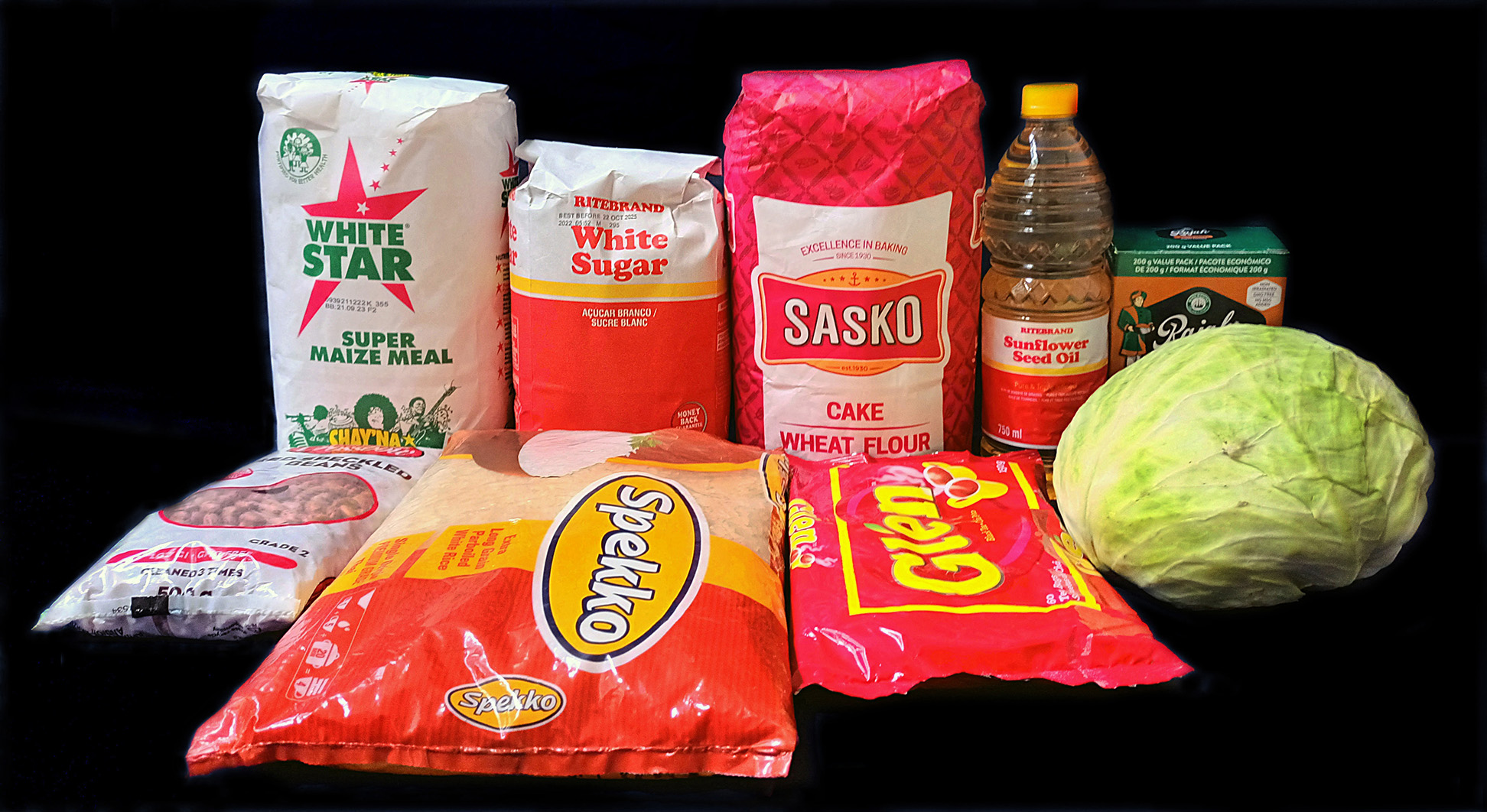Maverick Citizen has been tracking the prices of 14 basic food items that a consumer can buy with R370, the amount of the SRD grant. The food basket hovers above R400, making it unaffordable for those who receive the grant as their only source of income.
The Institute for Economic Justice studied the drivers and impact of exclusion from the Social Relief of Distress (SRD) grant.
“The Devastating Impact of being denied the SRD grant leads to increased poverty, hunger and financial instability. With no alternative social assistance for working-age adults, many struggle to meet basic needs, worsening long-term economic hardship,” the Institute found.
The Institute’s report shows that not only do recipients have to worry about meeting all needs within this amount, but also face possibly not receiving the monthly grant. The report finds that nearly half of successful applicants do not receive funds, with a difficult appeal process as “only 5.3% of appeals from eligible individuals succeed”.
They surveyed 900 excluded individuals and 58 in-depth interviews “revealed that 89.7% of exclusions on average each month were erroneous (of eligible people)”.
Inflation on food basket
Meanwhile the average cost of the foods prioritised and bought first in the household food basket increased by R34.79 (1,2%) from R2,888.74 in February 2025 to R2,923.52 in March 2025. The Household Affordability Index shows that the average cost of the foods prioritised and bought first in the household food basket increased by R101.95 (3,6%) from R2,821.58 in March 2024 to R2,923.52 in March 2025.
“The foods subject to VAT in the household food basket decreased by R3.92 (-0,2%) from R2,484.10 in February 2025 to R2,480.17 in March 2025. Year-on-year: The foods subject to VAT in the household food basket decreased by R11.29 (-0,5%) from R2,491.46 in March 2024 to R2,480.17 in March 2025.”
Zero-rated foods in the household food basket increased by R20.06 (0,7%) from R2,829.12 in February 2025 to R2,849.18 in March 2025. And yearly the zero-rated foods in the household food basket increased by R62.72 (2,3%) from R2,786.46 in March 2024 to R2,849.18 in March 2025.
The annual rate for food and non-alcoholic beverages accelerated to a four-month peak in February, according to Stats SA’s latest index. Food inflation rose to 2.8% from 2.3% in January.
“Fruit and nuts; vegetables; hot beverages; seafood, meat and cereals recorded higher rates. However, cold beverages; milk, dairy and eggs; oils and fats; and sugar, confectionery and desserts witnessed slower price increases,” the report reads.
Maize meal inflation reached a 17-month high and samp a 19-month high in February. The price index for maize meal increased by an annual 10.6% and samp by 18.7%.
“In terms of average prices, a 5kg bag of maize meal was R74.91 in February, up from R68.52 a year ago. The price for samp (1 kg) increased to R22.86 from R19.28 over the same period.”
The index states that prices are driven by “inflationary pressure in the production chain. According to the latest producer price index (PPI), annual farm inflation for maize was 64.7% and factory-gate inflation was 15.0% in January.”

Grant exclusion: push into poverty
The IEJ’s latest research uncovers the systemic drivers of exclusion, from digital and financial barriers to access to administrative injustices “that push the most vulnerable further into poverty”:
“Application Barriers — many face challenges applying due to digital and language limitations.
Faulty Eligibility Verification – 80% of rejections result from misclassified financial status.”
Read more: To feed a family of four just the basics costs R145.18 more than a year ago
Those most affected include women caregivers, rural residents, undocumented individuals, and those without digital or banking access. These systemic exclusions reinforce existing inequalities, preventing those in need from accessing critical support.
This comes as the National Energy Regulator of South Africa (Nersa) approved an electricity hike that kicks in at 12.74% for Eskom direct customers, effective from 1 April 2025, and 1 July for Municipal customers.
Mervyn Abrahams, programme coordinator at the Pietermaritzburg Economic Justice and Dignity Group, says this rescinds the impact of the recent grant additions and zero-rated basket expansion.
“We have to add electricity into the equation. We need it for cooking and food preservation, the fridge — you cannot eat beef livers raw,” he told Daily Maverick. DM
Maverick Citizen
No relief for grant recipients, hikes loom and food prices remain unaffordable
As the Institute for Economic Justice looked at drivers for exclusion from the Social Relief of Distress grant, its report shows that many recipients cannot meet basic needs. Meanwhile, the average cost of foods in the household food basket has increased again.





